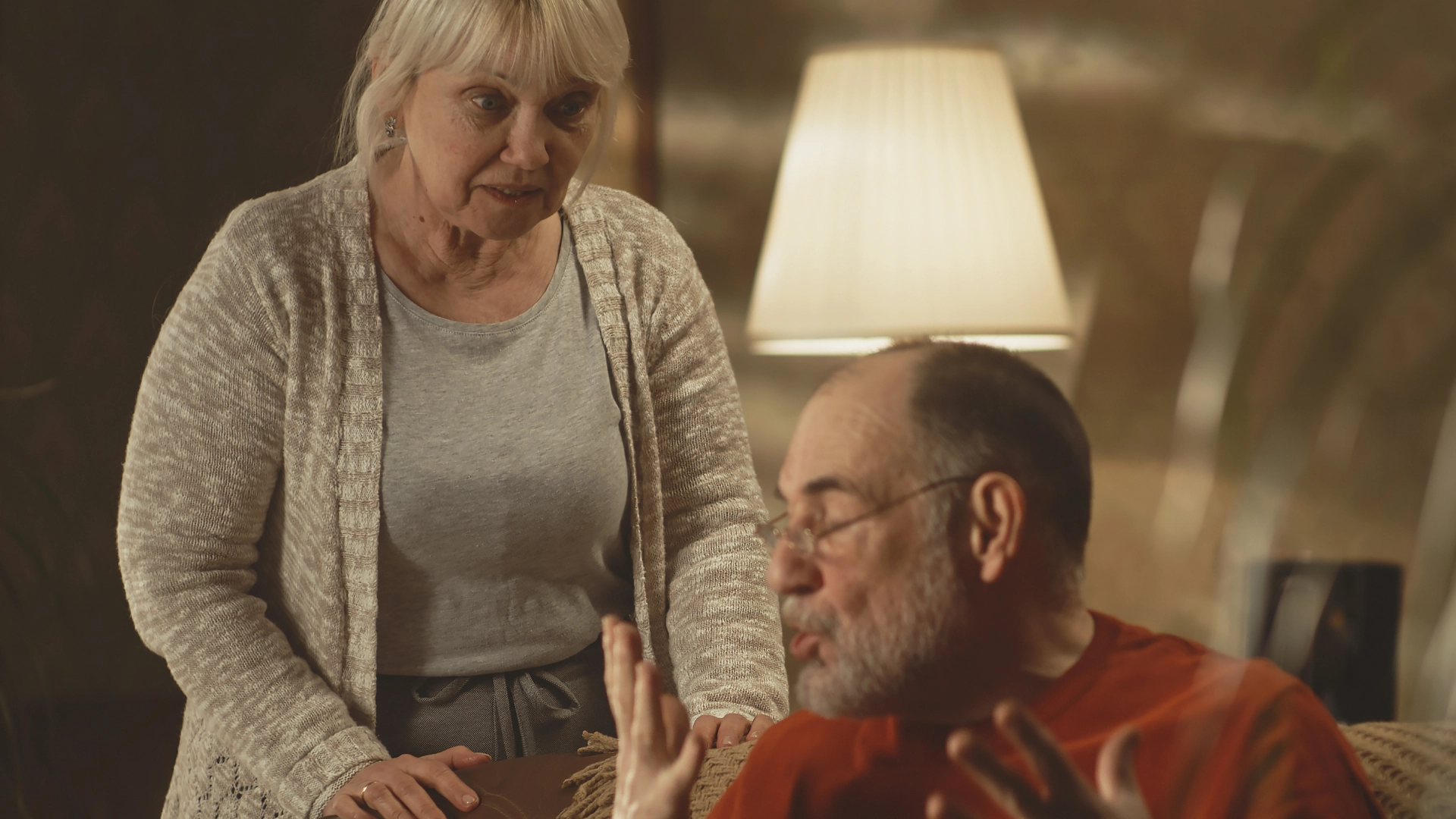10 Red Flags when Dating in your 60s
Dating in your 60s can certainly feel different. While the basic process and exciting emotions it stirs are about the same, singles’ dating goals and how much of their lives they want to commit changes shape and evolve with age.
A lot of singles may not be that keen on wasting time on the wrong connection, which is why catching those red flags when you’re dating in your 60s early can be handy. Red flags are as common in senior dating as they were when you were younger. Don’t see them as obstacles but a helpful warning signal, helping to show the way to what you’re really looking for.
Table of Contents
What are common red flags in senior dating?
Beyond going on better dates, noticing red flags on the senior dating scene keeps you safer, protects you from exploitative people and lets you quickly screen out the wrong kind of attention on apps. So, let’s take a look at some common red flags and how to handle singles who are proudly waving them.
Inconsistent communication
Poor communication is bad for most relationships, but it can be especially hurtful in a romantic relationship. If you can’t set up a reliable pattern for getting in touch or their tone toward you changes day to day, it’s difficult to know where you stand. This red flag shows you how interested someone is, their investment in the relationship and how they treat people in their life.
A study in Personality and Social Psychology Bulletin found consistent communication was one of the most important aspects of relationship satisfaction.1 For people dating in their 60s, it can also just be quite an obvious sign of a lack of emotional maturity or an unhealthy approach to intimacy, as older singles tend to have moved past this behaviour.
Rushing the relationship
Conversely, someone being a bit too interested in the relationship and rushing things before you’re ready is also a warning sign, when dating in your senior years, as it’s often not a result of genuine love and affection but rather poor boundaries, anxiety and an unhealthy approach to intimacy.
According to attachment theory, people who move too fast in a relationship can be a sign of an anxious attachment style.2 These people can also often move on from relationships suddenly and unexpectedly if they feel insecure. If someone contacts you too often, seems overly needy or seeks certain intimate milestones too soon, consider moving on to a situation where it feels more like you’re meeting in the middle.
Avoids talking about the past
If they avoid exploring the details of their old relationships or the subject of their experiences in general, it can signal that it’s still a significant obstacle for them. For instance, you may find that when you bring up how their last relationship ended, they tend to be very general about the details.
Most people who are dating in their 60s have emotional baggage. While it’s healthy in a growing relationship to try to focus on the present, avoiding the past entirely could be a sign that they haven’t emotionally dealt with certain traumas or find them too painful to confront. This is completely forgivable. However, it’s also reasonable to question whether they’re truly ready for a new relationship in their life.
Financial instability
Dating someone who’s bad with money is never a great idea but it can be a particularly dangerous trait for older singles, where planning your finances can dramatically affect your lifestyle. They may often ask you to pay for a date or show reluctance to meet up for plans that involve some cost, for example.
This is one of those red flags that is important in senior dating because it speaks to pragmatism. People in their 60s tend to be already planning their finances more strictly, and having a partner who shares those values and financial priorities is vital to keeping their shared life on track. Sharing costs early in the relationship also establishes mutual respect and healthy boundaries while warding off those who might exploit singles for financial benefit.
Disrespecting boundaries
While intimacy helps define what you share in your relationship, both emotionally and physically, boundaries define the space that is yours and yours alone. It’s how you maintain your identity and self-respect on dates with others. A boundary can be how open you are to certain types of physical contact or the amount of time you’re willing to make available to others.
Multiple studies have shown that boundaries are vital to healthy relationships as they maintain equity in interactions and help preserve authenticity.3 So when you’ve communicated a boundary to someone and they still cross it, it can indicate that your needs aren’t as important in the relationship as theirs or that they have an unhealthy social model.
Minimal social interaction
If someone doesn’t have at least a few existing social relationships – like friends or family members they interact with – it can be a sign that they find it challenging to form and maintain healthy relationships. Dating isn’t a cure for loneliness, and being someone’s sole social connection puts a lot of pressure on you that you may not be able to handle.
This feeds into a bias. We generally expect singles over 60 to be more socially isolated due to retirement, reduced social opportunities and what we see as a natural, gradual withdrawal from active socialising with age. However, research has shown that social connectivity and age aren’t always linked and that older people actually tend to show a higher degree of community involvement.4
Contradictory stories or lies
A relationship where only one person is telling the truth is not a relationship at all. Dishonesty is just one of those common obstacles in the dating scene for seniors. Whether it’s just using outdated photos on a dating app, being inconsistent with details of their personal life or their life story being a complete fantasy, a lie is a poor foundation for a relationship.
It can be a warning sign of so many problems, from a narcissistic personality type — something many people only recognize once they’ve already experienced dating a narcissist — to unhealthy approaches to intimacy to dishonesty about their relationship status.
There’s a reason a recent YouGov survey of people over 45 found that trust and honesty were not only the top two indicators of relationship success but also almost universally agreed upon by all respondents.5
Talks too much about exes
As we said, emotional baggage comes with the territory for anyone who dates past 60. It’s often part of what defines us and characterises each person’s journey in life. But when someone hyper-fixates on past relationships during conversation, it’s a pretty clear warning that they haven’t emotionally gotten over them yet.
Unresolved issues in life are understandable, but if they’re constantly complaining about their exes, comparing you to them or contriving ways to bring them up, is there any room in their heart for the seeds of a new relationship to take root? Beyond unresolved trauma, it can also indicate that they struggle with compromise and have become set in their ways with age when it comes to dating.
No interest in meeting friends or family
Someone who’s reluctant to become more deeply involved in your life by meeting the other people who are important to you may be signalling they’ve been turned off to serious dating by past trauma or simply that your current dating goals aren’t compatible.
This isn’t uncommon. A recent survey of singles by Pew Research in the US found that 24% of older singles were only looking for casual dating arrangements.6 Whatever their reason for resisting meeting your friends and family, it should be considered a glaring red flag for anyone dating over 60, as it strongly indicates a lack of commitment and emotional investment in the relationship.
Being stuck in a caregiver role
Feeling more like someone’s caregiver rather than their partner generally doesn’t lead to a high degree of fulfilment in a relationship. Healthy dating should be a quest for companionship and new shared experiences, not creating a dependency dynamic.
While chronic health issues tend to be a more common feature on the senior dating scene in, it shouldn’t fall to you to be the primary carer of your partner’s wellbeing. Particularly if you feel like it’s their driving motivation for dating in the first place. Someone who doesn’t practice positive self-care in their life will likely carry this behavioural pattern over to other aspects of life, like their relationships.
What are the best tips for dealing with red flags when dating in your 60s?
So now that you know how to recognise red flags and our senior dating tips, how do you actually address them? Is the relationship automatically doomed? Not always.
- Make them aware of their red flags – Some singles over 60 may not even be aware of their red flags or are invested enough in you to compromise. Try communicating these in an empathetic and open-minded way to see if there’s a pathway to meaningful change.
- Communicate boundaries early – This will not only give them better insights into your needs but also communicate self-respect and emotional awareness.
- Differentiate between red flags and yellow ones – Not all early relationship problems have to be dealbreakers. There’s a difference between someone who exhibits some changeable quirks and someone with a definitively unhealthy approach to relationships. Sometimes it’s a better idea to simply proceed with caution and see how the behaviour develops as you grow closer.
- Never ignore them – The emotional intensity of early relationships affects everyone, including people dating in their 60s. It can make us more forgiving of red flags, but they need to be nipped in the bud before they become a pattern, even if it involves a bit of conflict.
- Seek couples counselling – Sometimes a neutral third-party that’s trained in these issues can offer you both unique insights and advice for negotiating these problems healthily.
How important is communication for resolving red flags in senior dating?
Communication is the single most important relationship-building tool at your disposal for addressing and resolving red flags, along with a host of other relationship issues that can crop up when you start dating after 60. It allows you both to be on the same page in the relationship, highlights issues early on before they become major conflicts, and fosters a healthy and accepting communication dynamic.
But this is only true when it’s the right kind of communication and is supported by active listening and effective relationship-maintenance strategies, particularly in conflict resolution and addressing red flags. A study found that while maintaining an empathetic and specifically positive communication style (such as avoiding harsh criticism or judgments) has a significantly positive effect, this effect is linked with behaviours including emotional openness, acts of affirmation, doing activities together and interacting with your mutual social connections.7 This means that positive action must follow positive communication.
When to walk away from red flags when dating in your 60s?
The simple answer here is when the red flags leave you feeling like you’re putting more into the relationship than you’re getting out, or when you can see the behaviours getting progressively worse over time, despite regularly communicating your thoughts and needs. A popular name for this probationary phase is the 3-Month Rule.
For instance, when they continue to over-fixate on past relationships, even after giving them the appropriate space to unpack their emotional baggage. As resolving red flags is essentially about setting boundaries, when someone constantly ignores them even after you’ve emphasised their importance, they’re essentially saying their needs take precedence over yours.
Some red flags in senior dating are more urgent than others, and you should walk away as soon as you spot them. These include consistent dishonesty, a lack of growth in trust, no change in commitment levels, or if at any point you find their behaviour towards you to be inherently manipulative or abusive.
What are the red flags in online senior dating?
Thinking of turning to online senior dating services, like many older singles? Then it’s a good idea to understand some dating app red flags that can help you quickly weed out unsuitable singles.
- They resist moving forward – If you’re just exchanging messages and they resist meeting in person or keep cancelling at the last minute, it could be a red flag that they’re not committed to dating or possibly they don’t match their profile.
- Financial requests – If someone on a dating apps for over-60s asks you for money, report and block them.
- Blank profiles – Someone who hasn’t bothered to fill out their profile properly either doesn’t care enough to find the right person or is hiding something.
- Inappropriate messages – Whether they’re being insulting, sexually suggestive or just give you a strange feeling, listen to your gut and block them.
To help have a more secure experience, try to practice common-sense safety measures like not providing sensitive personal information, meeting in public and reporting profiles that behave inappropriately.
eharmony caters to singles from all walks of life and isn’t specifically a senior dating site. But we have been consistently popular with singles over 60s looking for real relationships due to our focus on creating authentic connections, simplifying the process by curating matches based on psychological compatibility, and our enhanced focus on member security.
How do reg flags differ in senior men and women?
There is no significant gender difference in red flags for seniors. A survey of UK adults found that men and women almost completely agreed on their list of immediate red flags, with the common top entries being poor hygiene, arrogance, noisy eating and rudeness to hospitality staff.8 Our red flags tend to be informed by societal norms, dating history and personal preference. When used correctly, red flags are simply early behaviours that we extrapolate larger personality traits from.
When we examine a State University of New York study on factors that commonly affect relationship satisfaction in long-term couples, there is a slight gender difference.9 From this data, one could say some good red flags for senior women to look out for are partners who aren’t emotionally available enough or don’t show a willingness to commit time to the relationship. From the same data, the red flags for men over 60 relate more to a greater desire for sexual intimacy and the dependability of routine in relationships.
What are the common red flags when dating older senior men and women?
It’s important to keep an eye out for red flags across the board when dating older women and dating older men. But based on how general advice from relationship experts differs when addressing men and women, there are some warning signs that senior men who are dating and women dating men in their 60s can pay specific attention to.
- Shallowness – When they only see you as a means to an end for companionship, rather than a distinct individual with their own needs.
- Lack of independence – People who are coming out of a very long-term relationship may not yet know how to manage without a partner. This can leave you feeling like you’re just filling a role or like you’re some kind of dating stopgap.
- Trouble regulating emotions – This doesn’t include people who show reasonable emotional reactions to negative situations, but rather ones who genuinely struggle with it due to mental health issues. Dating can’t be a solution to personal issues.
- Lack of emotional openness – They show a consistent reluctance to discuss their feelings or even explore deeper aspects of their life.
- Anti-social behaviour – This doesn’t have to be physical and can include being overly critical of you or making too many jokes at your expense.
- Unfairness in the relationship – If they’re constantly expect the early dating period to be on their terms and schedule, where your needs consistently aren’t prioritised or outright ignored, this behaviour will only get worse as the pattern grows and they become more comfortable with you
Q&A – Expert backed answers to your questions
Do you have a burning question, personal story, or problem related to this topic? Send it in! The more details you share, the better we can understand your situation and offer meaningful guidance. Our relationship experts and editorial team may select it and respond with their advice. All submissions are anonymous. For product or account-related questions, please reach out to our Customer Care team via the Help pages.
The responses provided here are for informational and entertainment purposes only and do not constitute professional advice. Any advice shared is not a substitute for mental health services or counseling. We encourage you to contact a licensed therapist or support service for any urgent or sensitive issues you are experiencing. We do not provide real-time or personalized support, and we will only provide responses to submissions if we can offer valuable, helpful, and topical answers.










